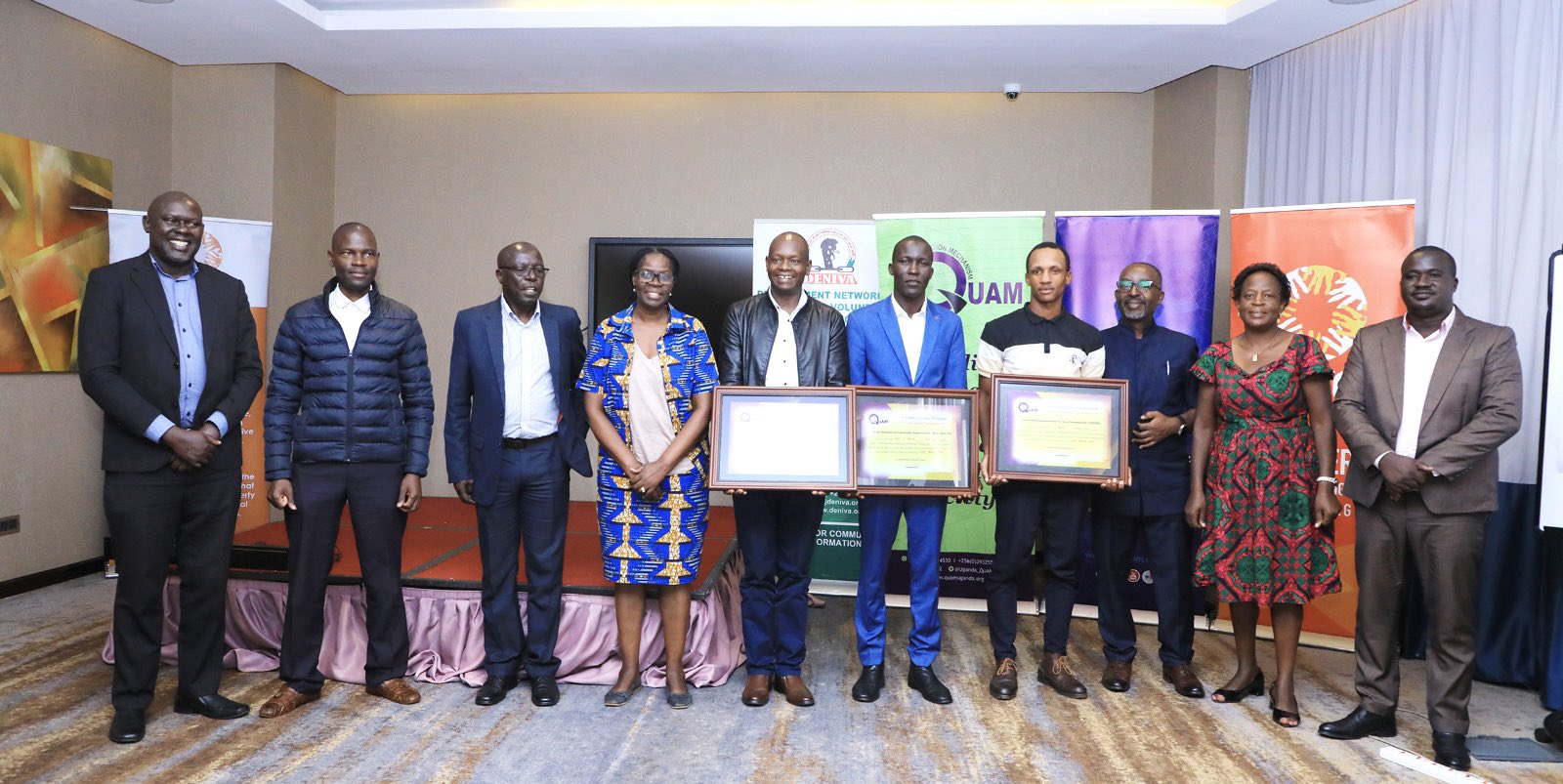
Nine Civil Society Organizations Receive QuAM Certification, Strengthening Governance and Accountability
Nine Ugandan organizations today received their Quality Assurance Certification Mechanism (QuAM) certificates, marking a significant milestone in their commitment to good governance, transparency, and accountability. These include; AMA Cradle for Development (AMACOD), Facilitation for Innovation and Sustainable Productivity (FINASP), Noble Community Agency for Peace and Development (NOCAPAD), Meaningful Empowerment for Change and Poverty Alleviation (MECPA), Lango Civil Society Network (LACSONET), Bukedi Rural and Urban Community Initiatives (BRUCI), ADINA Foundation, Community Empowerment for Rural Development (CEFORD), and Rural Initiative for Community Empowerment (RICE) West Nile. This certification, a benchmark for institutional credibility, enhances their ability to attract funding and partnerships, further solidifying their role in Uganda’s development landscape.
The certification event, attended by key stakeholders from civil society, and the donor community, underscored the importance of self-regulation and compliance. As Uganda moves towards greater localization of development efforts, civil society organizations must demonstrate robust internal structures and adherence to best practices.
The Significance of QuAM Certification
The QuAM certification serves as a quality assurance mechanism that helps organizations uphold ethical standards, improve operational effectiveness, and align with national and international regulations. The process involves rigorous assessment, ensuring that recipient organizations meet high standards of financial management, leadership, and service delivery.
Dr. Moses Isooba, a leading advocate for localization, highlighted the role of QuAM in strengthening Uganda’s civil society. “Organizations that pursue QuAM certification signal their commitment to transparency and accountability. In a time when funding sources are shifting, credibility is our strongest asset,” he stated.
Localization and the Need for Strong Institutions
The certification ceremony comes at a time when Uganda’s development sector is transitioning towards localization—a shift aimed at reducing reliance on international NGOs (INGOs) and empowering national actors. This move requires organizations to be “fit for purpose,” with strong internal governance and compliance mechanisms in place.
Dr. Isooba emphasized that civil society organizations must go beyond compliance with legal frameworks; they must actively demonstrate leadership in governance and accountability.
Challenges and Opportunities in the Localization Agenda
While localization presents opportunities for civil society organizations to take the lead in development initiatives, it also brings challenges, particularly in securing sustainable funding. With a $60 billion global reduction in overseas aid, Ugandan organizations must adapt by strengthening institutional resilience and exploring alternative funding mechanisms.
A Call for Continued Commitment
The event concluded with a call to all certified organizations to uphold the values of transparency, integrity, and excellence. Stakeholders urged more organizations to pursue QuAM certification as a pathway to strengthening institutional health and ensuring long-term sustainability.
As Uganda’s development landscape evolves, initiatives like QuAM remain essential in building a credible and resilient civil society. With strong governance and accountability mechanisms in place, national organizations can confidently take the lead in shaping the country’s future development.



